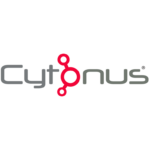Exclusive: San Diego biotech raises $11.7M to use cells as targeted delivery vessels for genetic medicines
Ryan Cross
Senior Science Correspondent, Endpoints News
Cytonus Therapeutics, a small biotech company north of San Diego, raised $11.7 million in Series A financing to engineer cells as delivery vessels for genetic medicines, including mRNA therapies and oncolytic viruses for cancer, Endpoints News has learned.
The unconventional approach flips the script on cell therapy. Rather than using the cell as a medicine itself, a partially-gutted cell transports a drug to a specified address in the body, thanks to molecular homing beacons appended to its surface.
“In many ways, it behaves like a biological drone. It’s an entirely new category of drug delivery,” Cytonus co-founder and CEO Remo Moomiaie-Qajar said in an exclusive interview. “We are not a cell therapy company.”
The idea comes from co-founder Richard Klemke, a researcher at the University of California, San Diego, who has engineered cells dubbed Cargocytes that use chemokine receptors or adhesion molecules displayed on their surface to act like a biological GPS that homes in on cancer and releases a drug.
The defunct Rubius Therapeutics once had ambitions to use red blood cells as living vessels that transported therapies for cancer or rare diseases, but lackluster clinical results ultimately led the company to shut down earlier this year. Cytonus believes its approach will be better.
“Other approaches like nanoparticles, exosomes, even red blood cells, are all passive ways to deliver a product. They circulate in the bloodstream and are very inefficient at getting out and penetrating deep into tissues,” Moomiaie-Qajar said. “The Cargocyte is different. It’s an active transporter, better at homing and migration than anything else.”
“Other approaches like nanoparticles, exosomes, even red blood cells, are all passive ways to deliver a product. They circulate in the bloodstream and are very inefficient at getting out and penetrating deep into tissues,” Moomiaie-Qajar said. “The Cargocyte is different. It’s an active transporter, better at homing and migration than anything else.”
Cells as protein factories and Trojan horses
The Carlsbad, CA-based startup has been working on Cargocytes since 2018, supported by six grants from the National Institutes of Health and one from the California Institute for Regenerative Medicine. Partners Investment led the new funding round, with biotech investor John Ballantyne, Proxima Ventures and the Gemseki Fund chipping in, too.
The influx of cash will help the startup bring its first therapy into clinical trials in roughly 12 to 18 months, Moomiaie-Qajar said. The company has several programs underway using its Cargocytes to deliver either mRNA or oncolytic viruses to glioblastoma and metastatic solid tumors, but it hasn’t decided which of those cargos or indications it will test first.
While other companies are using mRNA to temporarily reprogram immune cells to attack cancer in a twist on CAR-T cell therapy, Cytonus stands apart for its ambition to use cells as an alternative to lipid nanoparticles to get mRNA therapies encoding anticancer proteins into tumors.
“The Cargocyte becomes an in vivo protein factory,” Moomiaie-Qajar said. After an intravenous infusion in animals, the cells produce high levels of a protein in the target tumor, providing a new way to deliver potent immune-stimulating cytokines that may be too toxic to deliver systemically, he added.
The startup is also using its Cargocytes as a Trojan horse for sneaking oncolytic viruses past the immune system and into tumors, where they can wreak havoc. Many companies developing the engineered viruses are just directly injecting them into tumors, but Cytonus’ approach will allow them to be infused systemically.
Cytonus is using mesenchymal stem cells in its first generation of therapies and has developed a way to “gently” remove the nucleus of each cell through centrifugation, essentially stripping it of its brain so that the cell doesn’t start acting in unwanted ways, Moomiaie-Qajar said. He hopes the approach will be useful for delivering many cargos to many parts of the body.
“If we can figure out how to deliver one thing to a target cell or tissue, we can deliver 1,000 things to that cell or tissue,” he said.
About Cytonus Therapeutics, Inc.
Cytonus is a San Diego-based biotech company that has developed a vast platform of proprietary immunotherapeutic products to treat a wide range of medical conditions including cancers, infectious diseases, inflammatory diseases, and cognitive disorders, and to improve patient outcomes. Its proprietary Cargocyte™ technologies are next-generation biomolecular delivery devices which have numerous medical applications across unmet therapeutic areas. Cargocytes™ are engineered to safely transport a multiplicity of therapeutic payloads into difficult-to-reach targeted tissues, and can be programmed to deliver selective, potent, and controllable “off-the-
shelf” therapies.
For more information, we invite you to us on LinkedIn and on Twitter “X” at: @CytonusTx.
Contact: press@cytonus.com
Statements in this news release other than strictly historical facts, such as statements about Cytonus’ plans and strategies, new and existing products, and technologies, anticipated clinical and regulatory pathways, and markets for its products, are forward-looking statements. The words “believe,” “expect,” “aim,” “anticipate,” “estimate,” “project,” and similar expressions identify forward-looking statements that speak only as of the date hereof. Such statements involve risks and uncertainties that could cause actual results to differ materially from anticipated results due to many factors, including regulatory and development risks. The company undertakes no obligation to publicly update or revise any forward-looking statement. This news release is neither an offer to sell, nor the solicitation of any offer to purchase, any security.


